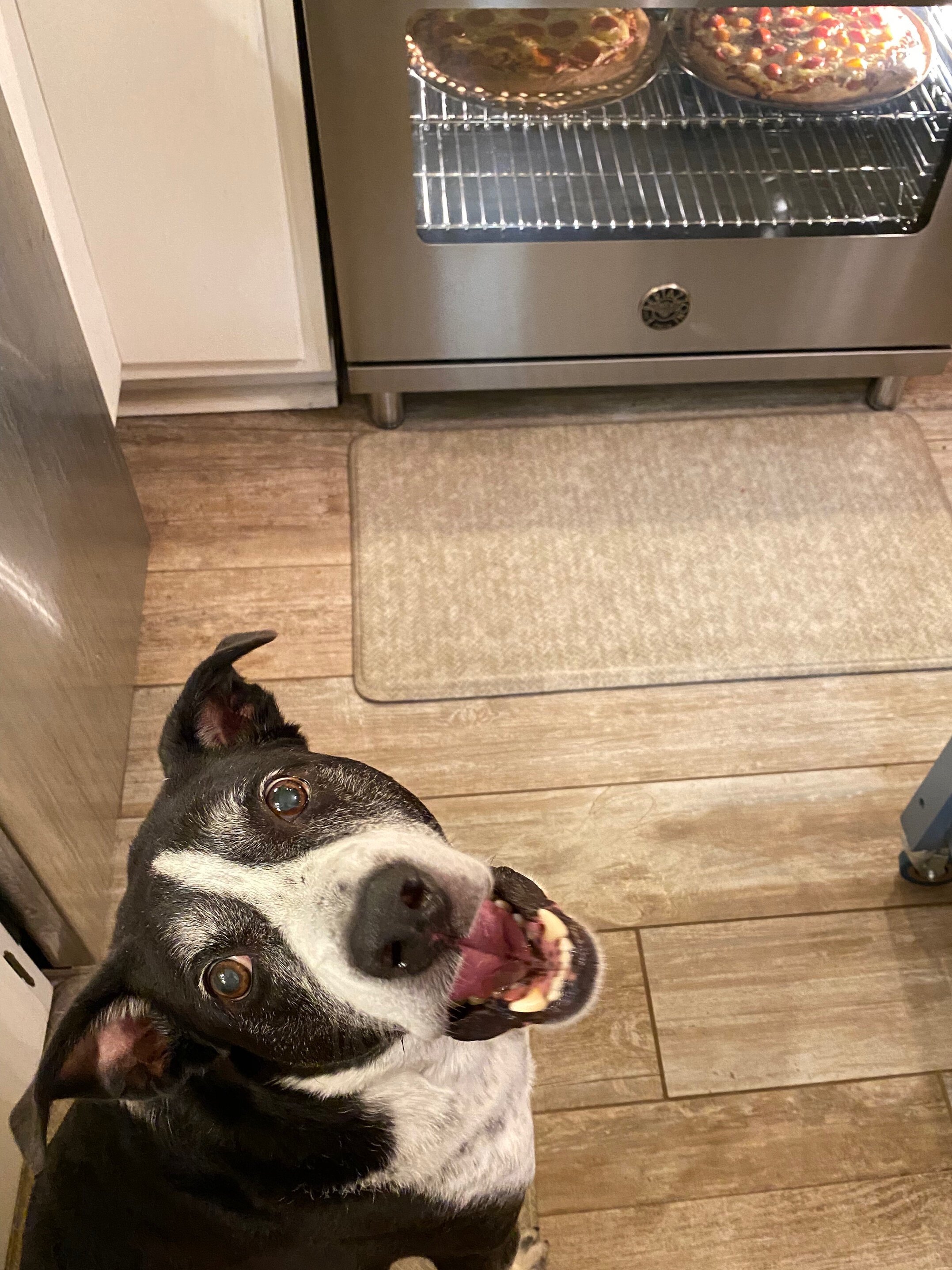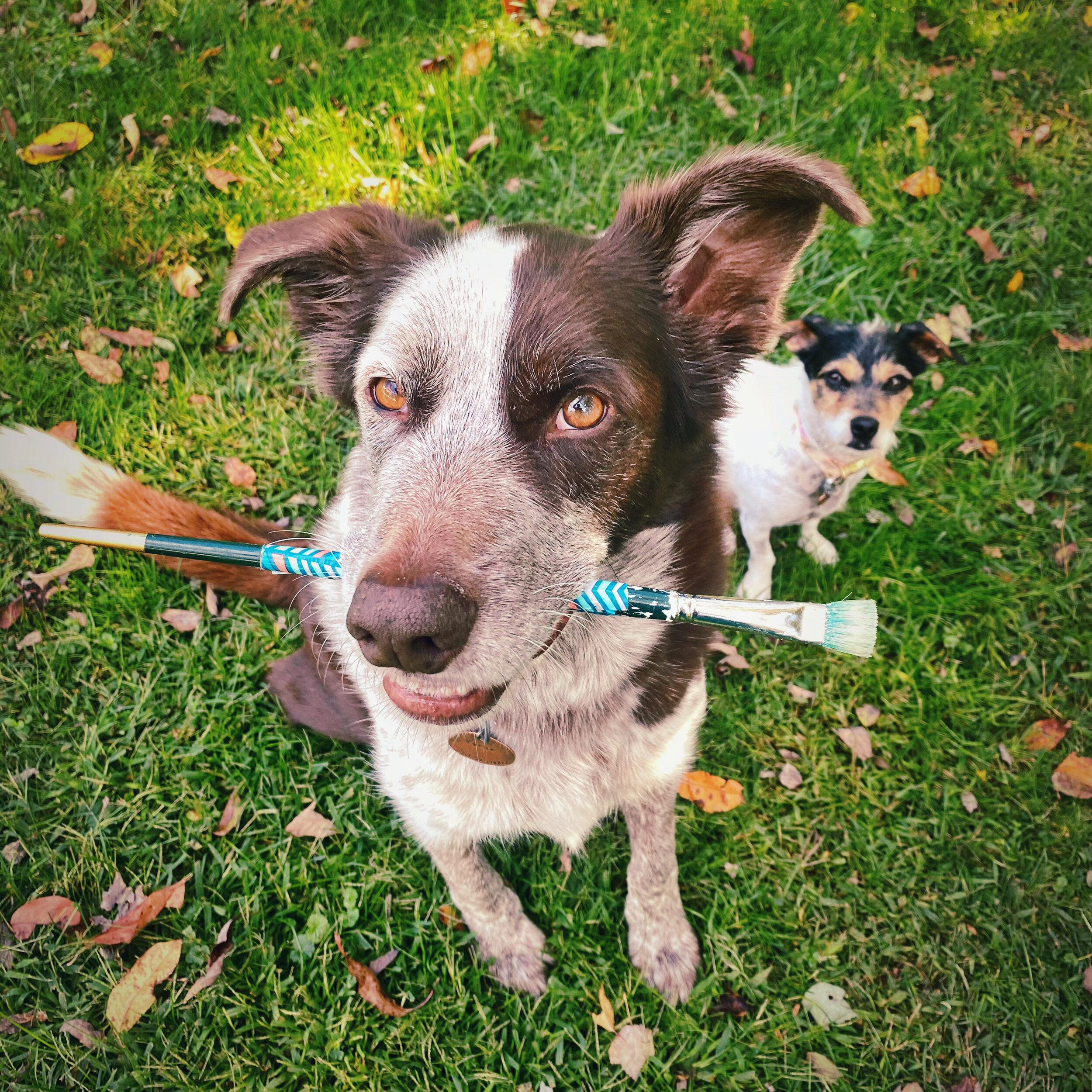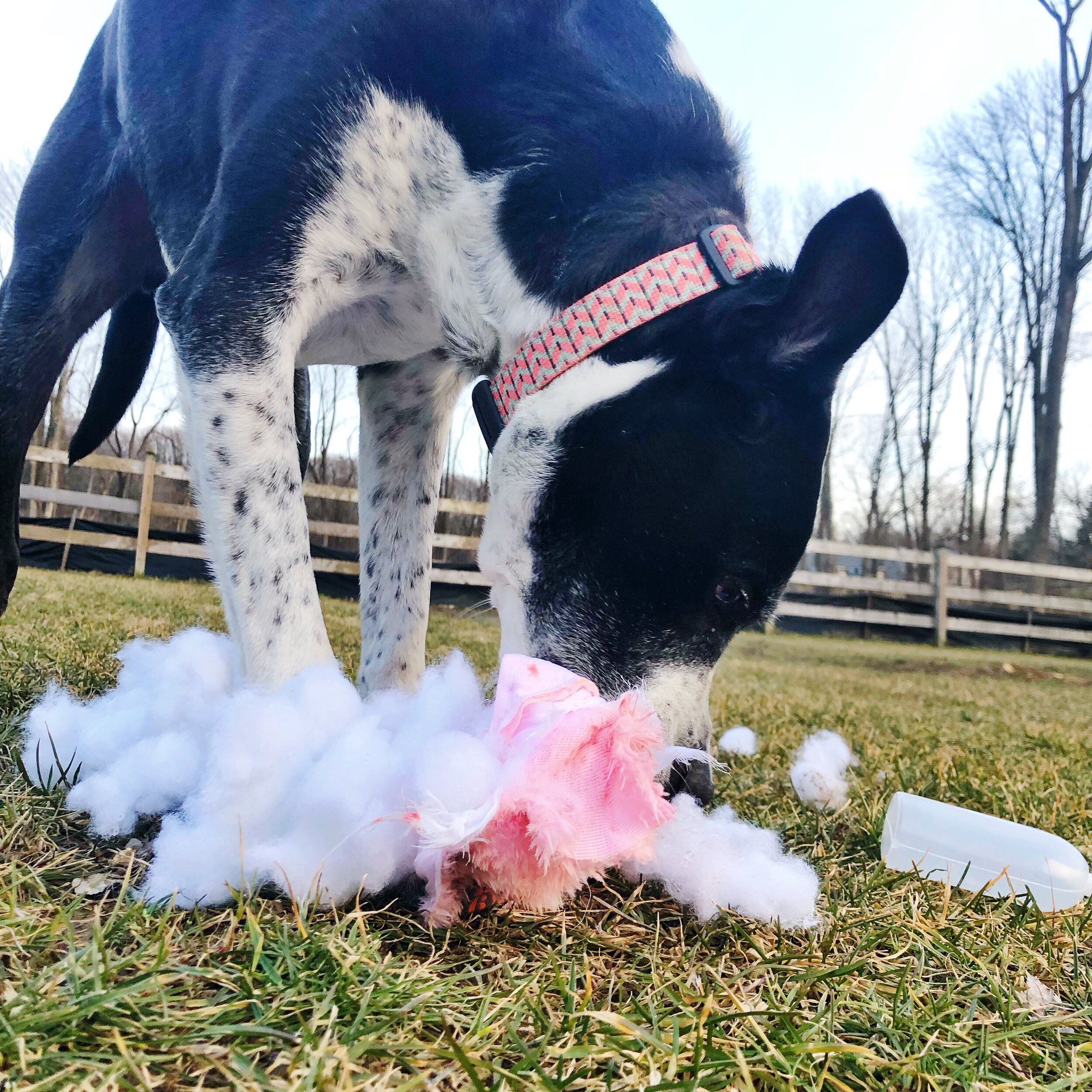Blog
Training, life with dogs, and more
“But I Don’t want to Go to the Carnival”
Tycho is comfortable and happy almost everywhere he goes. But, even though Tycho may have been comfortable with piecemeal features of that environment, I don’t think he’s ever experienced all of that, all at once. I hoped this was likely an anomaly for dear sociable Tycho, but my concern remained.
When you’ve been in the animal behavior and training industry long enough, you learn that the objections and criticism are loud and harsh. For me, sometimes the external objections are loud and grating enough to play in my own head, unbidden.
A Counter Surfing Reframe
Counter surfing is one of those behaviors that comes with a reinforcement format that is hard to beat. The reinforcement of consuming or playing with whatever good stuff a dog manages to collect is immediate. No delayed gratification here! And, the items a dog can get from a countertop are usually novel, and in an amount that makes a lasting impression. In my own home, despite the household humans’ efforts, the behavior has also been reinforced with attention (even if it’s in the form of a surprised expletive or two).
A Letter to My New Puppy
This is what I want you to know. I have devoted my life to understanding your kind of Earthling and to helping others understand your kind of Earthling. I have also devoted my life to making Earth an easier and gentler place for Earthlings that are not human beings.
Miles and the Patootie Peccadillo
When the trial weekend arrived, I decided to go for it. Miles was entered in Intro Level, scheduled for first thing in the morning. I got to the training center in plenty of time, and I walked the course several times before the judge’s debriefing.
The judge, an upbeat woman in a ruffled pink sleeveless shirt, emphatically reminded all the competitors, “Remember, this is supposed to be FUN! This is time well-spent with your dog. Don’t be nervous, go out there and have FUN!”
A Very Well-Trained Wrecking Ball
Here’s the real talk. We all have different priorities when it comes to training our dogs. It’s a good practice to set goals and priorities, especially when we are stretched thin on time, energy, and resources. Because our dogs are individuals, we have to consider their individual needs and interests in their training. In addition, we have to consider our own needs as individual humans who live with our dogs, and our own individual training preferences and abilities. Our priorities, needs, preferences, and abilities can change over time, too.
It’s a good practice to prioritize modifying, changing, or managing those behaviors that compromise safety or quality of life. But, aside from that, there is no right, ultimate, or perfect order of priorities.
Five “Just One Thing” Things for Dog Training
Because, here’s the thing. Setting achievable, relevant expectations for yourself, your dog, and your own life, is more important than the amount of work or effort you put into training. Doing what works best for you, your dog, your family, your community, and your own life is an amazing and loving way to care for your dog and for yourself.
It’s Okay to Ask for Help, Even If You Don’t Know What the Problem Is
Problems wax and wane in perceived severity based on stress, surrounding experiences, and more. The urgency of problems is vulnerable to the pressures of time, plans, and obligations, but also to our lived experiences and how we’ve thought about problems in the past. What counts as a problem in our lives is a subjective matter, shaped by our own expectations and desires, which are thrown into relief against social and cultural standards.
The Allure of Finished Behavior
The expectation that our dogs’ behavior is “finished” is just as unreasonable as holding that expectation for our own knowledge and behavior. I got an A in geometry in the 10th grade, but I couldn’t do a geometry problem now if my life depended on it.
Nevertheless, the idea of finished behaviors is alluring. It motivates us to keep putting our energy into training, to pursue titles, and seek out moments of performative perfection. It’s dreamy to think that behavior could be entirely reliable, that we could get to an ephemeral place where the pressures of the learning process do not apply. But, the reality of behavior is quite the opposite.
Begin Anywhere
Beginnings can happen anywhere. They can be snuck in. They can be forgotten and picked up later. Beginnings can happen over and over and over. That’s one of the best things about them.
And, different stories can be told, and they can be told more often, until they’re familiar.
"Mise En Place" and Dog Training
In cooking, there’s a French phrase: mise en place. It means, “To put into place.” The phrase describes a specific practice in cooking, to prepare yourself, your supplies, and your space in advance. “Mise en place” includes memorizing recipes, arranging spaces, positioning all equipment and utensils nearby, measuring and preparing ingredients in advance, and cleaning up throughout the process of cooking. It prevents emergency trips to the pantry to hunt for spices, forgetting ingredients, and all manner of disasters that can occur while preparing food. It’s a vital practice in cooking, but as a concept, it’s useful for thinking about other areas of life—including dog training.
Living with a Stufficidal Enthusiast
Allowing dogs to engage in species-specific behavior is important to them. Sniffing, digging, and chasing are all examples of behaviors that are part of the joy of being a dog, and stufficide is no different. Engaging in these behaviors provides important physical and mental stimulation for our dogs. It’s up to us to provide appropriate outlets for these behaviors as our dogs co-exist with us in modern life.
One Delight of Reward-Based Training
When dogs start to experiment with their behavior in training, it usually signals something important: the dog feels good about training. Our dogs are our friends, and we ought to want for our dogs to feel happy about things we do together. I’m so fortunate to have had the opportunity to witness this over and over again with my clients’ dogs and my own dogs. Forgive my hyperbole, but it’s exhilarating.
A Well-Balanced Companion
Operationalizing behavior also means drawing a distinction between describing behavior and interpreting behavior. When we use operationalized descriptions to guide our interpretations of behavior in training, we can stay focused on behavior and behavior change. We can use observable information to measure behavior change and meet our training goals.
What’s In A Name?
Dogs who do not respond to their names, or who cannot pay attention in challenging environments are frequently accused of “not listening” or being “stubborn.” The good news is that these dogs can learn how to pay attention and they’re not actually suffering from a character flaw. When we know we’re using our dogs’ names as a cue for attention, we can align our expectations with what our dogs can do and incrementally build the behavior of paying attention.
Gearing Up: How to Harness Your Puppy
Putting a harness on a dog seems like a simple task. But, it’s not. Putting a harness on a young, exuberant dog who is excited to go for a walk can be like trying to put socks on a kicking toddler. A few months ago, I attempted to harness a bouncy Australian shepherd and I got a bloody nose in the process! (And I’ve got a lot of experience putting harnesses on dogs!)
If you struggle to gear up your dog or puppy, don’t despair. You’re not alone!
The Dangers of Distracted Dog Walking
It’s really easy for us to focus on our dog’s undesirable behavior. But, our dogs get stuff right, too! And it’s up to us to notice when they get stuff right and reinforce it. Here are a few examples of things your dog might get right on a walk: looking at you when you call your dog’s name, walking on a loose leash, peeing on the mailbox instead of your prized roses, waiting at the curb, moving with you as you change directions, and looking up at you without being prompted. If we don’t reinforce the things our dogs get right, our dogs might be less motivated to continue doing those things in the future.
Adventures in Frozen Enrichment
Have you ever cooked a new, complicated recipe with a lot of ingredients? Or watched a movie looking for symbolism? Or played the last level of a video game? I bet you felt mentally tired afterward. I know I do! These kinds of activities count as enrichment for us humans. And, it’s up to us to provide dog versions of these activities to our canine friends.


















